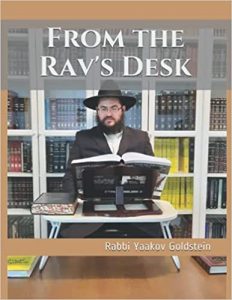
*As an Amazon Associate I earn from qualifying purchases.
What to do if accidentally answered Amen or Kedusha in middle of Shemoneh Esrei?
Question:
I was in middle of Shemoneh Esrei on Shabbos Shacharis when the Chazan reached Kedusha. Now, I stopped saying Shemoneh Esrei to listen to the words of Kedusha, as required, and although I know that it is forbidden for me to answer to the Kedusha, I absentmindedly answered for one of the stanzas. I was unsure of what I should do now. Should I have returned to the beginning of Shemoneh Esrei? Do I simply continue from where I left off? Must I return to the beginning of that blessing? Is this considered as if I spoke in middle of Shemoneh Esrei?
Answer:
It is considered as if you spoke in middle of Shemoneh Esrei, and follows the following law:
If one accidentally answered to even one word of Kaddish or Kedusha or Barchu in middle of Shemoneh Esrei, then he is to return to the beginning of the blessing that he spoke in middle of. [If he answered the above in between two blessings, then he is simply to resume from whatever blessing he is holding by. However, if he is holding within the first three or last three blessings, then he must always resume from the beginning of the set of the three blessings [i.e. Avos/Ritzei] even if he spoke in between two of the blessings.]
If he spoke in middle of a blessing and did not know the law and therefore did not restart from beginning of that blessing that he spoke in, then if he remembers prior to concluding Shemoneh Esrei, then he must return to the beginning of that blessing that he spoke in. If he already concluded Shemoneh Esrei, then he must repeat from the beginning of Shemoneh Esrei. It is defined that he has yet to conclude Shemoneh Esrei so long as he has yet to take three steps back.
Explanation:
To answer the above question we must verify two matters, the first being regarding the general law of one who spoke in middle of his Shemoneh Esrei and the second is regarding if answering for a Amen or Kedusha has the same status as a person who spoke mundane speech or not. So let us first tackle the subject of a person who accidentally spoke mundane speech and the like in middle of Shemoneh Esrei:
If one accidentally spoke in middle of Shemoneh Esrei, then if enough time for him personally to say his entire Shemoneh Esrei has yet to pass, then he is to return to the beginning of the blessing that he spoke in middle of. If he spoke in between two blessings, then he is simply to resume from whatever blessing he is holding by. However, if he is holding within the first three or last three blessings, then he must always resume from the beginning of the set of the three blessings [i.e. Avos/Ritzei] even if he spoke in between two of the blessings. If he spoke in middle of a blessing and did not know the law and therefore did not restart from beginning of that blessing that he spoke in, then if he remembers prior to concluding Shemoneh Esrei, then he must return to the beginning of that blessing that he spoke in. If he already concluded Shemoneh Esrei, then he must repeat from the beginning of Shemoneh Esrei. It is defined that he has yet to conclude Shemoneh Esrei so long as he has yet to take three steps back.
Let us now tackle the second subject, which is whether or not answering Amen or Kedusha in middle of his Shemoneh Esrei has the same status as one who accidentally spoke mundane speech. On the one hand, one can argue that answering Amen and Kedusha is not considered an interval in Shemoneh Esrei being that it is recited during the repetition, and is hence no worse than one who accidentally recited Zachreinu outside of 10 days of repentance in which we rule that he is not required to repeat Shemoneh Esrei, being that he did not state a lie and the stanza is sometimes recited in Shemoneh Esrei. However, in truth the Poskim conclude that accidentally answering for Kaddish or Kedusha or Barchu is considered an interval just like one accidentally spoke mundane speech, and hence it follows the conclusion we wrote above.
Sources: See regarding that if one accidentally answered Kaddish or Kedusha or Barchu it follows the same law as one who spoke: Implication of Admur 104:5; M”A 104:8 “Betefila Mikri Meizid Vechozer Lerosh”; Elya Raba 104:10; P”M 104 A”A 8; M”B 104:29; Kaf Hachaim; Piskeiy Teshuvos 104:13 footnote 95 [unlike what he writes in 108:13; See regarding one who spoke in the middle of his Shemoneh Esrei: Admur 104:4; 65:1; 185:5; Michaber and Rama 65:1; 104:5-6; Brachos 23a; M”A 65:1; M”B 65:16; Ketzos Hashulchan 20:21; Ben Ish Chaiy Mishpatim 1:8; Kaf Hachaim 10428, 90:48; Ish Matziliach 1:11; Yabia Omer 3:10; Piskeiy Teshuvos 104:11; See regarding one who accidentally mentioned Meiyn Hameura in middle of his Shemoneh Esrei at the wrong time of the year: Admur 108:18; Ketzos Hashulchan 21:4; Michaber 108:12


Leave A Comment?
You must be logged in to post a comment.